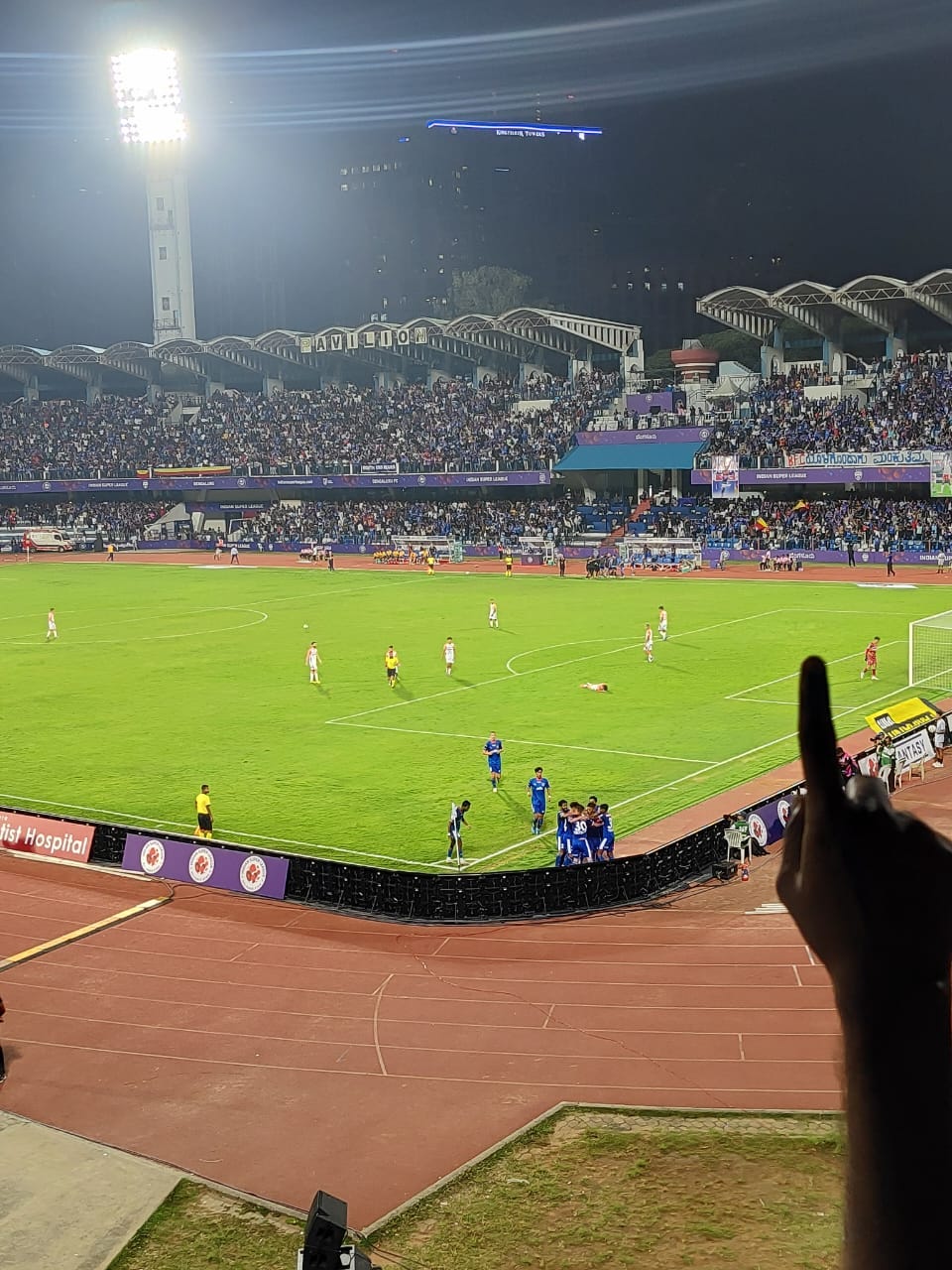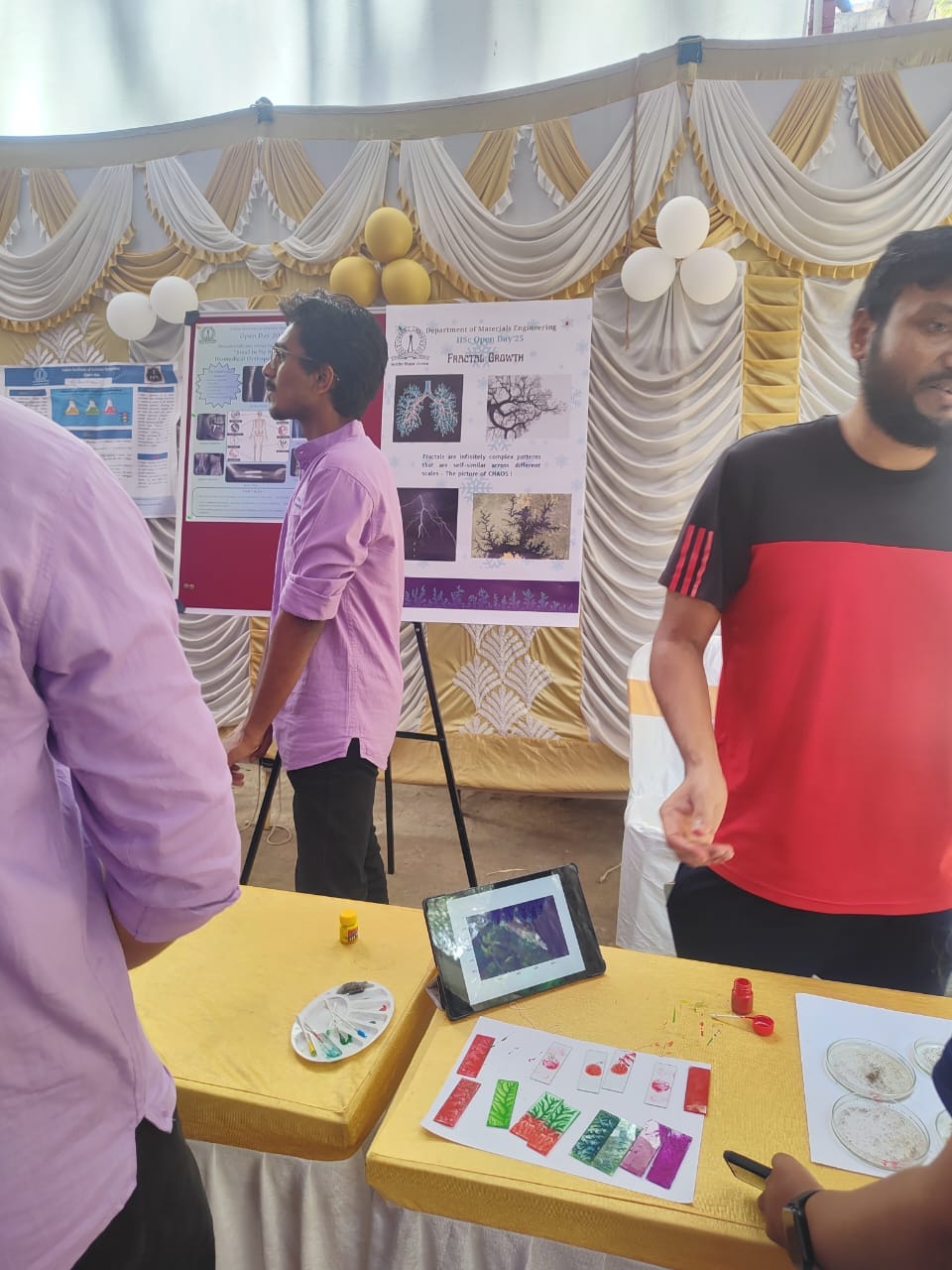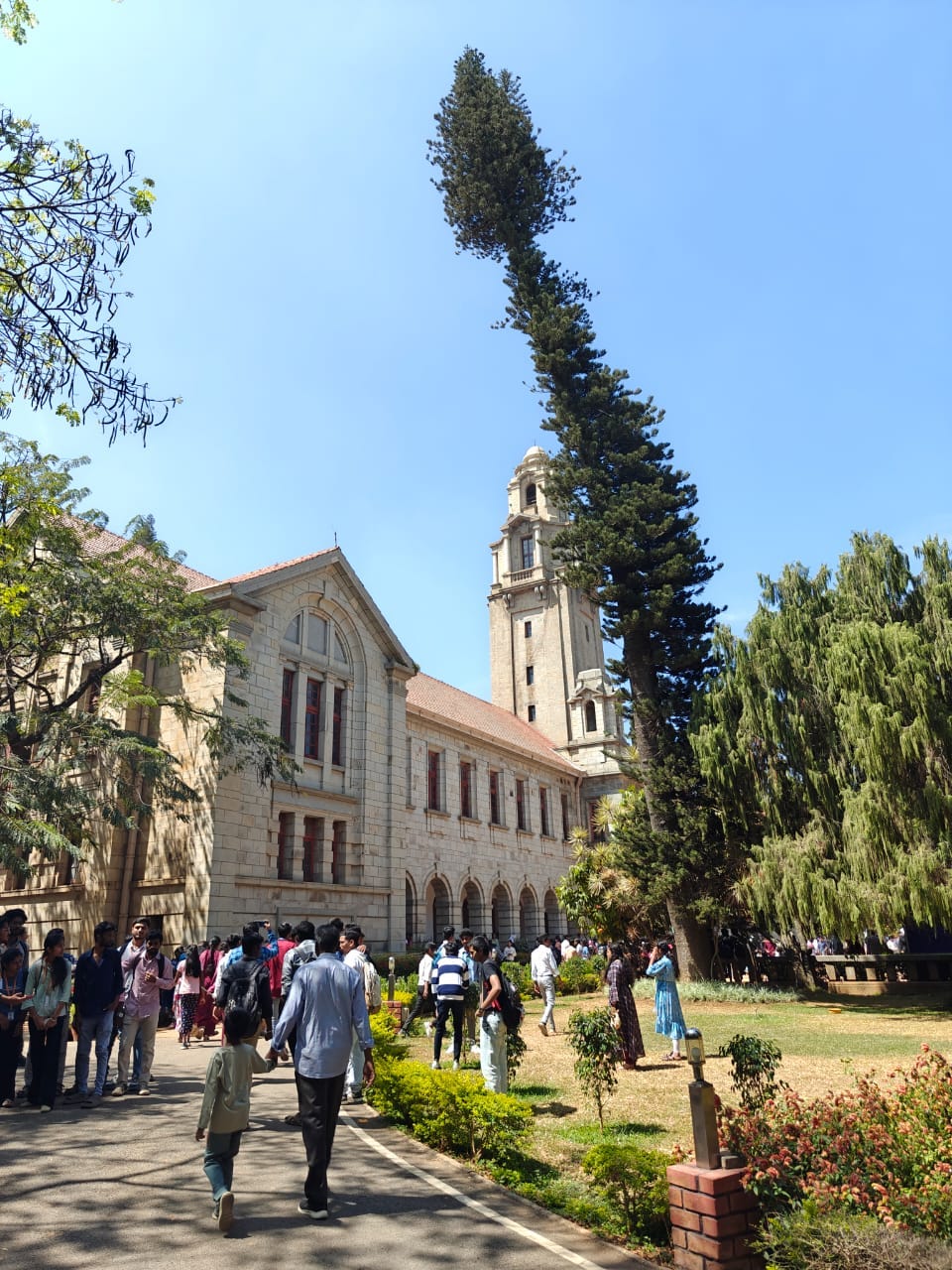Why I've stopped caring for Indian Cricket and a nostalgia inducing trip to IISc's Open Day
Sports in India not named cricket need much better support and money
I’m in Goa right now - I got cheap tickets and have no intention of doing anything over the top - just chill on the beach, work peacefully and hit some of the best food spots in India. I know I know, some may - “Why Goa when it’s so expensive, full of cheating cab drivers and I’d rather go to cheap-ass Vietnam/Thailand than underwhelming Goa!”
Just like I feel bad about Bangalore’s decadence over the last 2 decades, I also feel bad about how capitalism has ruined large chunks of Goa. I’ll come back to this piece in another blog because I need to mention 2 recent developments that are more important to me.
We entered the plane and got seated at our seats (Row 3, without that extra fee miraculously). I didn’t quite remember if we opted for the “flexi” option on MakeMyTrip that had a perk of a free meal on the plane in that option. I dreaded eating that dry as a desert sandwich that Indigo serves (seriously Indigo - what a fall from grace) and was mentally prepared to just asked for a box of nuts instead. Thankfully, it didn’t have to come to that.
There was an athletic looking white dude, covered with tattoos, who sat in the row in front of us. He seemed mildly familiar but I didn’t bother looking twice and occupied myself watching a nice slice-of-life movie called “Tu Hai Mera Sunday”.
Fast forward to landing time, I got the same feeling “I’ve seen him somewhere” when I saw his bag - it had a BFC (Bengaluru FC - the football team) logo! I just waved a little at him and asked him politely “Are you Ryan Williams?” He said yes and I replied with “Nice to meet you, BFC fan here!”. He shook my hand and I wished him well for the upcoming ISL playoffs.
No one else recognized who he was. I know he’s not Sunil Chettri but he is arguably BFCs second-best player. Can you imagine if RCB’s second-best player was on the plane? (who is the current RCB squad’s second-best player anyway? I know it was Virat Kohli when ABD was around) Everyone would point at him and a many would try to catch him after the deboarding for a selfie or just at least a chat.
This is a small example of the state of sports in India. Every sport not named cricket is down in the dumps (please don’t cite Chess- it’s a game!).
How much did the IPL garner in terms of the broadcast rights per season? About 10,000 Cr. What is the same number for the ISL - about 275 Cr. And the broadcaster would still likely lose money. The ISL also happens to have more matches than the IPL by about 25%. That is at least a 40x different in the per-game revenue.
The much-promoted Pro Kabaddi League (PKL) has broadcast rights awarded at about 900 Cr. Not bad, but still 11x lower than the IPL.
For a two-month event, the IPL also eats up a lot of the ad revenue in India.
What is the annual revenue of the BCCI? About 21,000 Cr.
What is the annual revenue of all the other sports federations in India?
That’s so depressing right?
As someone who watches far more of other sports including football (local included - I’ve been to 4 BFC games this season), basketball, F1 etc, I hate it that cricket gets an overwhelming amount of attention in India. Can you think of any other country in the world where a single sport has such disproportionate power? Don’t bother thinking about it, I’m sure you won’t.
I read the great Abhinav Bindra’s autobiography called “A Shot at History - My Obsessive Journey to the Olympic Gold and beyond” - an absolute must-read of an autobiography if there was ever one. I’m adding a few gold level excerpts from that book -
Champions have to be built. Talent found, skill sandpapered, techniques tuned, minds strengthened. It requires a detailed and relentless pursuit of greatness. Think of it like a military operation. But it doesn’t exist in India. If producing champions was a degree, most officials would fail. It’s why so much of what is achieved is in spite of officials. It’s a pity. So much of this nation has changed around me, so many strides taken, but attitudes worn by sporting officials still arrive from another archaic century. They are often like some royal, pious granters of favours. Sport is about deserving, about earning. But athletes in India, irrespective of performance, are often made to feel grateful. As if some extraordinary accommodation is being made for them. It is a belittling, tiresome exercise for the athlete because by the end he is often begging for money which, ironically, has been allocated for athletes like him. In 2006, I attended a meeting at the ministry of sports to request funding for training through the National Sports Development Fund (NSDF). It was the year I had won the World Championship. Yet I walked out of the meeting completely disillusioned. Every request for funds for coaching, for equipment, for training was questioned. Kya beta, do you really need this? Questions are fair, accountability is necessary. I even got some funding then, for which I am grateful. And post-Beijing, the unnecessary questions began to decrease as the association and the sports ministry started to sniff professionalism. But it is how you are questioned, it is the identity of the questioners sometimes, that I objected to. The tone is patronizing, the manner feudal, the atmosphere unwelcoming. I am their job, but I feel like their burden. These are bookkeepers, who look like they feel a physical pain in parting with money that is not really theirs, who have little understanding of sport yet will interrogate us suspiciously on why a sports psychologist is necessary. It’s like going through the ABC of sport all over again. It is humiliating, it is tiring.In the West, they get this right: the athlete comes first, the administrator second. I never touched anyone’s feet as an athlete, but if I had, my life would have been easier. Maybe then they might have got my name right. A senior official called me Anwar Sultan before the Sydney Olympics. The Indian Olympic Association boss, Suresh Kalmadi, referred to me as ‘Avinash’. I am a shooter, hardly a household name, but you’d think he’d know who I was, considering I had just won Olympic gold in Beijing.The day after winning gold in Beijing was as revealing. I went to see Colonel Rajyavardhan Singh Rathore perform. Four years earlier, in Athens 2004, he had won a medal, India’s first individual silver in any sport. He is both a fine man and a fine shooter, but more importantly for us, he was a pathbreaker, a pioneer. He was proof that the world could be challenged, a medal could be won. You have no idea how liberating that is. In Beijing, Rathore struggled. It happens. Perfection is an elusive, untameable beast and so it was with him that day. On such days you need support. You want to believe in this time of terrible loneliness that you are not alone. Just a silent, consoling pat from an official on the back. Best is just a respectful silence for it conveys an understanding of the fickleness of sport.
When Rathore finished in Beijing, I heard the then president of the National Rifle Association of India and the secretary general ripping him apart, listing a series of absurd reasons why he lost. That he was lucky to have won silver in Athens, that he had too much attitude. I wasn’t surprised by their reaction, I wasn’t disappointed, I was simply sad. I realized that irrespective of performance, few people in the administration really care for shooters and shooting.The world has changed, but Indian sport is slow to learn.At the 2010 Vancouver Winter Olympics, the Chinese contingent apparently arrived with eight foreign coaches. To be the best, they got the best. It’s always been their way. Greatness, they understood, comes only with humility. They are not alone either. The English have had Australian swimming coaches, the Australians have had Chinese diving coaches. But Indian sport tends to hesitate in accepting world-class help from outside. Sometimes we look for the cheap deal.Athletes in the US vs Athletes in India
In India, athletes step forward with hope, in America, at the centre, athletes walked with a bounce. They expected to win because they were people accustomed to winning; they had been carefully polished to win. At Sydney, India won a single bronze, while the US collected ninety-seven medals, forty of them gold. Confidence was like some birthright here and they approached the Games without the cynicism whose fumes athletes are forced to inhale every day in sporting India. The Americans truly believe they are the best, and luckiest, country. They weren’t going to the Olympics carrying awe and content just to try, they were going to the Olympics to succeed, make history, be remembered. It was an adventure, a collective one, and I was awed by the importance they gave to team and the building of it.I can add many more of these, but I’d suggest you go read the book instead.
I’ll not bother ending this part of the blog on a positive and hopeful note about how sports scene in India is improving like I usually do - it would be just an illusion. Any improvement is marginal at best, I want a radical change which is something I don’t foresee in the next 20 years.
Elite sportsperson turned coach, Pullela Gopichand was brutally honest enough to say-
Bindra was himself very honest about the fact his relatively well-off background helped him far more than the Indian Government did.
India’s interest in hosting the 2036 Olympics in Ahmedabad (of all the cities) is nothing but yet another gimmicky show of grandeur that the Indian government is so good at - imagine if that kind of money ($10 billion++) is put into building grassroots sports culture in India where employment in sports is seen as a long-term career option.
Imagine how many lakhs of people will get direct and indirect employment if this happens. Imagine how this will increase national pride and competitiveness that will spill over into other avenues of life. Indians are so short of self-esteem in general and fall prey to rubbish propaganda so easily - this will be a true emancipation rather than chest-thumping WhatsApp forwards.
Some ardent cricket enthusiasts may call me a jealous hater. Maybe I am, I don’t know and I don’t care. I admit to being quite apathetic to the form of Indian cricket over the last few years (except for the away tests in England and Australia - which still hold some gravitas) - so many games all the time, so much of attention towards the IPL, so much BCCI hegemony, so much national attention - it’s all such a turn-off.
Please go watch and support other sports in India that are not named cricket. Go watch a game of the ISL or any other neglected league instead of some random drinking bout at Bob’s Bar. Go experience the passionate support of the West Block Blues (of the BFC), the Manjappada (of Kerala Blasters) and so on. You can see both - in the pic/video below.
Unlike the IPL, you can actually get matchday tickets without a major fuss or without breaking the bank.
Also, unlike RCB, the BFC men’s team actually wins trophies.
IISc Open Day and a throwback to my engineering days
I visited the Indian Institute of Science’s (IISc) Open Day recently and was quite enthused about it. I had done some scam internship in IISc back in 2010 (which I call NITK Summer Camp because of the sheer number of NITK junta interning there) which I’m not quite proud of but I have fond memories of the beautiful campus.
We spent a few hours there, taking a look at various demos in different departments and it made me miss the purity of science.
A part of me inevitably said “This is so intellectual and cool, what am I doing now? Some jugaadu problem-solving and pivot tables on an Excel sheet? I wish I had studied better in my engineering days”
I know that nostalgia has a great pull in our imagination, full of romance and “those golden days”. My engineering days from NITK do seem like golden days now that were so carefree, so basic and with that lively hostel atmosphere.
But on brutally honest introspection, beyond the dose of nostalgia, I know that deep in my bones, I would not make a good engineer. I hate the complicated mathematical equations that came to me as a big surprise. I felt terrible after exiting the exam hall, half of the time.
While I definitely should have been more sincere back then, it would be more to develop better life skills than to a better engineer. I just don’t have the patience, mathematical prowess, and aptitude that it takes for it to be a good engineer and I am far better at what I do now than the hypothetical case where I’d pursue a full-fledged career in engineering. Despite it’s apparent shallowness, I like the breadth of what I do now, I like how real world it feels and how it requires bursts of micro problem solving all the time and intense collaboration with people. I would never last long as a researcher on a lonely journey in a lab, trying to go 100x deep into a seemingly inconsequential problem.
The point I’m trying to make is, apart from my self-introspection, nostalgia can be equally destructive to your mind as romantic as it can seem. Savour the good times but don’t let it create an illusion in your head that makes you question your life choices.
You can still appreciate the small wonders of science in your daily life though! An open, curious, and receptive mind is all it takes.









